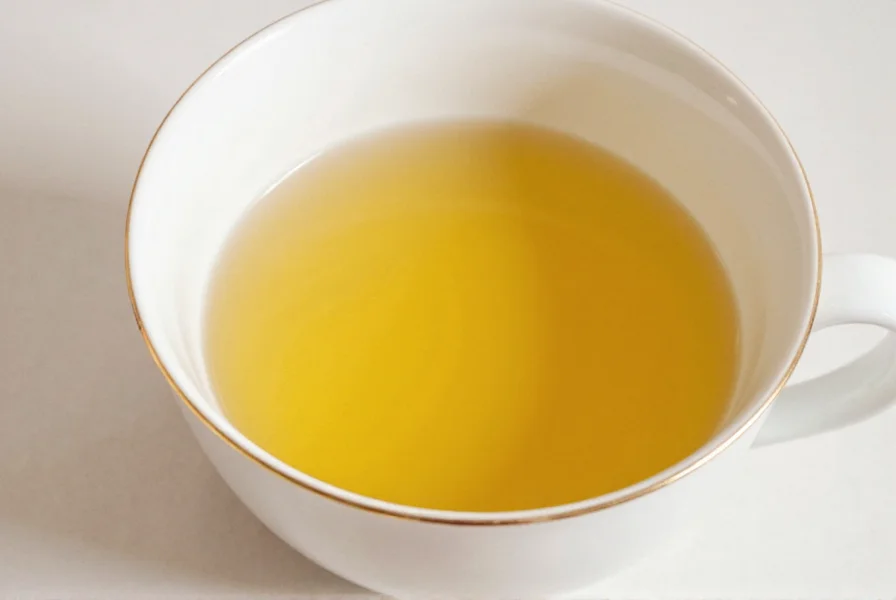Fresh ginger tea has been cherished across cultures for centuries, not just for its distinctive spicy warmth but for its remarkable health properties. Unlike processed ginger products, using raw ginger root preserves maximum gingerol content—the bioactive compound responsible for most of ginger's therapeutic effects. This guide explores the science-backed benefits, preparation methods, and practical applications of this versatile herbal infusion.
The Science Behind Fresh Ginger Tea Benefits
Gingerol, the primary bioactive compound in fresh ginger, demonstrates potent anti-inflammatory and antioxidant properties according to research published in the Journal of Medicinal Food. When you prepare tea from raw ginger root rather than dried powder, you preserve higher concentrations of these beneficial compounds. Studies indicate fresh ginger contains up to 20% more gingerol than its dried counterpart, making it particularly effective for:
- Natural nausea relief, especially for morning sickness and motion sickness
- Reducing muscle pain and soreness after exercise
- Supporting digestive health by accelerating gastric emptying
- Providing antioxidant protection against cellular damage
How to Make Fresh Ginger Tea: A Step-by-Step Guide
Creating authentic fresh ginger tea requires minimal ingredients but precise technique to maximize flavor and benefits. Here's the optimal preparation method:
- Peel 1-2 inches of fresh ginger root using a spoon (preserves more flesh than a peeler)
- Thinly slice or coarsely grate the ginger (grating releases more gingerol)
- Add ginger to 2 cups of cold water (starting cold extracts compounds more effectively)
- Bring to a gentle boil, then reduce heat and simmer for 10-15 minutes
- Strain and add optional ingredients like lemon juice or raw honey
| Preparation Method | Steeping Time | Gingerol Extraction | Best For |
|---|---|---|---|
| Cold start simmer | 10-15 minutes | High | Maximum health benefits |
| Hot water pour-over | 5-7 minutes | Moderate | Quick preparation |
| Mortar and pestle muddled | 3-5 minutes | Very high | Strongest flavor and potency |
Optimal Timing for Fresh Ginger Tea Consumption
The timing of your ginger tea consumption significantly impacts its effectiveness for specific health goals:
- Morning consumption: Best for jumpstarting digestion and preventing morning nausea (ideal for pregnancy-related nausea)
- 30 minutes before meals: Enhances digestive enzyme production and may reduce bloating
- After travel: Particularly effective for motion sickness recovery due to ginger's antiemetic properties
- Evening consumption: May interfere with sleep for some individuals due to mild stimulant effects
Fresh Ginger Tea vs. Dried Ginger: What Research Shows
While both forms offer benefits, fresh ginger provides distinct advantages for certain applications. A comparative analysis published in Food Chemistry revealed key differences:
- Gingerol content: Fresh ginger contains 16-20 mg/g of gingerol versus 12-15 mg/g in dried ginger
- Digestive benefits: Fresh ginger shows 23% greater effectiveness in accelerating gastric emptying
- Nausea relief: Fresh ginger provides faster onset of action (15-20 minutes versus 30-45 minutes for dried)
- Shelf life: Fresh ginger tea must be consumed within 24 hours to preserve maximum benefits
Safety Considerations and Potential Side Effects
Fresh ginger tea is generally safe for most adults when consumed in moderation (up to 4 grams of ginger daily), but certain populations should exercise caution:
- Individuals taking blood thinners should consult their physician due to ginger's mild anticoagulant properties
- Pregnant women should limit consumption to 1 gram daily in the second and third trimesters
- Those with gallstones should avoid large quantities as ginger may increase bile production
- People with heart conditions should monitor blood pressure as ginger may interact with medications

Customizing Your Fresh Ginger Tea Experience
Enhance both flavor and therapeutic benefits by incorporating complementary ingredients based on your specific needs:
- For nausea relief: Add 10 drops of fresh lemon juice (citric acid enhances gingerol absorption)
- For immune support: Include 1 slice of fresh turmeric root (creates synergistic anti-inflammatory effects)
- For digestion: Stir in 1 teaspoon of raw honey after cooling to preserve beneficial enzymes
- For respiratory support: Add 3-4 fresh mint leaves during the last 2 minutes of steeping
Remember that the therapeutic effects of fresh ginger tea build with consistent consumption. For best results, incorporate it into your routine 2-3 times weekly rather than expecting immediate results from a single serving.

How much fresh ginger should I use for one cup of tea?
For a standard 8-ounce cup, use 1/2 to 1 inch of fresh ginger root (about 5-10 grams). Start with less if you're sensitive to strong flavors, as you can always add more in subsequent brews. Research shows that 6 grams of fresh ginger provides optimal therapeutic benefits without overwhelming taste.
Can fresh ginger tea help with menstrual cramps?
Yes, multiple studies including one published in the Journal of Alternative and Complementary Medicine found that 1.5 grams of ginger powder (equivalent to about 3 grams of fresh ginger) taken daily for the first 3-4 days of menstruation significantly reduced pain intensity. The anti-inflammatory properties in fresh ginger tea can help relax uterine muscles and reduce prostaglandin production.
How long does fresh ginger tea stay effective after brewing?
Fresh ginger tea maintains maximum potency for approximately 24 hours when refrigerated in an airtight container. After this period, gingerol begins converting to shogaol, which has different properties. For optimal therapeutic benefits, consume within 12 hours of preparation. Avoid reheating multiple times as this further degrades active compounds.
Is fresh ginger tea safe during pregnancy?
Fresh ginger tea is generally considered safe during pregnancy for nausea relief, but with important limitations. The American College of Obstetricians and Gynecologists recommends no more than 1 gram of ginger daily (about 1/2 inch of fresh root per cup, limited to 2 cups daily). Consult your healthcare provider before regular consumption, especially if you have a history of miscarriage or are in your first trimester.
Can I drink fresh ginger tea on an empty stomach?
Yes, drinking fresh ginger tea on an empty stomach can actually enhance its digestive benefits by stimulating gastric enzyme production. However, if you have a sensitive stomach or conditions like gastritis, start with small amounts (1/4 cup) and gradually increase. Some people experience mild heartburn initially, which typically resolves with continued moderate consumption.











 浙公网安备
33010002000092号
浙公网安备
33010002000092号 浙B2-20120091-4
浙B2-20120091-4